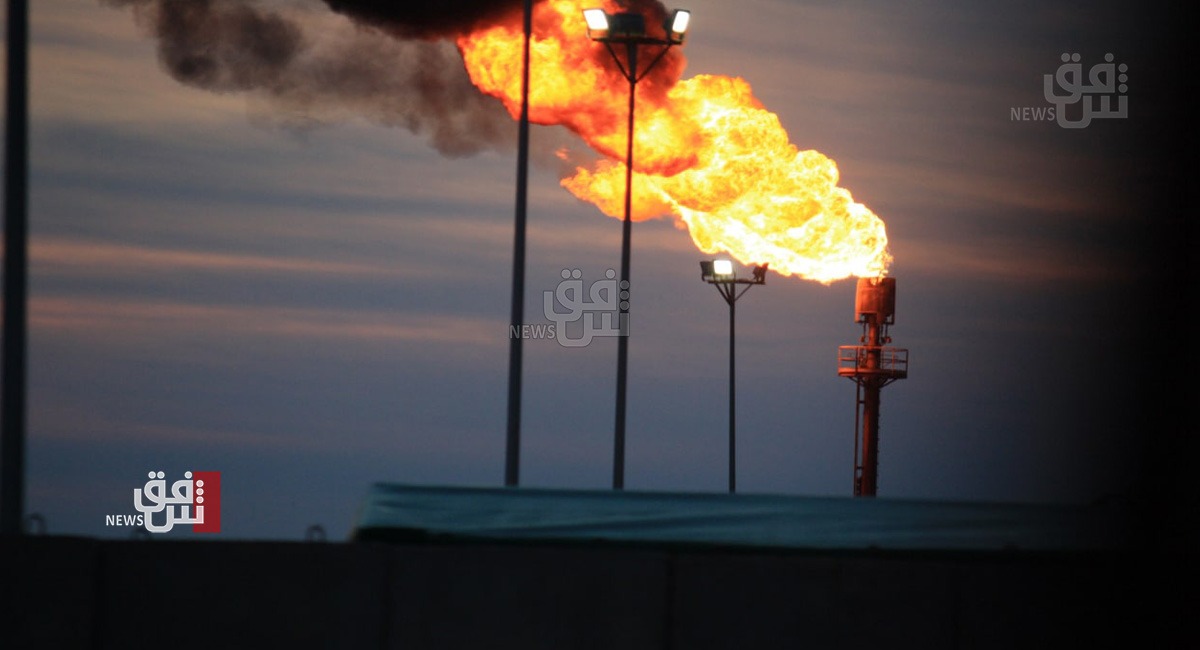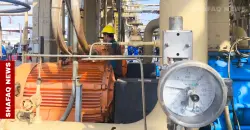Foreign oil companies' departure: fear of a new reality looming on the horizon

Shafaq News / Foreign oil companies' threats to sell their shares in Iraq's main oil fields have raised the government and the Oil Ministry's concerns, in light of measures that may harm Iraq's oil production. Those threats have also provoked an array of reactions among some oil industry professionals varying between content, rejection, and skepticism towards the move.
The explanations for this move ranged from reducing these companies to restructuring their operations in light of the COVID-19 pandemic and its effects on the oil industry, the disposal of fossil fuel assets, the trend of investment in clean energy under shareholders' pressure, or even a focus on gas like BP, security conditions, the investment climate that is not attractive to international companies according to the Iraqi Ministry of Oil, in addition to the increased Chinese influence in the oil sector.
Over the past decade, major international oil companies such as ExxonMobil, English-Dutch Shell, Russian Lukoil, and some Chinese state-backed companies have been asking to gain a foothold in Iraq and develop its fields.
During the first and second rounds of licenses put forward by the Oil Ministry in 2009 and 2010, these companies were able to obtain contracts to develop Iraq's largest oil fields and continued production from the country's main oil fields without any significant impact, until these companies began to think seriously in 2021 to exit these oil fields.
When hosted by the council of Representatives on July 4, Oil Minister Ihsan Abdul Jabbar attributed the intention of major companies, like Lukoil and ExxonMobil, to sell their shares in Iraq to the country's "unattractive investment environment".
This is not the first time that foreign oil companies have left Iraq, as Dutch-British Shell has already withdrawn its investments from Iraq and sold its stake in the Majnoon Oil Field in Basra, in 2018, to become an operator and producer of gas associated with Iraqi oil fields.
ExxonMobil, the giant West Qurna 1 Oil Field operator, wants to sell its 32.7% stake this year after eliminating its 32% stake in Basiqa's license in the Kurdistan Region.
ExxonMobil has filed an arbitration suit against the state-owned Basra Oil Company over the U.S. oil giant's attempt to sell its stake in the West Qurna 1 Oil field.
Furthermore, an ExxonMobil spokeswoman stated that the company agreed with third parties in January to sell its stake, while Iraq is seeking to acquire its stake the same way it did with Shell in the Majnoon Oil Field or sell it to a U.S. company.
Real investment with Western companies
"The real investment that produces real value for the country, develops society, and raises the level of work ethics, is what Western companies do," Iraqi Oil Minister Ihsan Abdul Jabbar told Shafaq News agency.
"Other companies are good at work, but they do not meet all these requirements," he said, adding, "The ministry is trying to bring in the best companies capable of creating a social environment and good work, as well as implementing projects at the lowest prices and the highest return."
Expert: Illegal operations
"The real reason oil companies are withdrawing from the oil fields is that the investment and operational costs are very high," oil expert Hamza al-Jawahiri told Shafaq News agency.
"Companies are putting their employees in Dubai, traveling in private jets and living in the most expensive hotels, in addition to bringing in consultant engineers, whom there is no need of, and they are paid up to 2,000 dollars per hour, stay for two to three months, gain millions of dollars without providing anything," al-Jawahiri said.
"Oil policy specialists follow the issue, object to the matter, and raise their voices in rejection, until the ministry started reducing expenses, from the time of former oil minister Jabbar Laibi to Minister Thamer al-Ghadhban, to the current minister, until it reached the prevention of any excess amounts that are spent," he added.
"These companies and the ministry cannot talk about these side costs because they would condemn themselves. Therefore, the financial return on licensing contracts has become very small, nearly one dollar per barrel. This money was doubling twice and three times through these illegal operations when they were exaggerating the operational cost," al-Jawahiri continued, pointing, "These companies started considering what they get unrewarding; for example, gaining 250,000 dollars a day for a company like ExxonMobil, one of the largest oil companies in the world, means nothing."
"The exit of these companies from the licensing rounds does not mean that they will leave Iraq once and for all, as Shell is currently investing Basra gas, ExxonMobil is discussing the development of a petrochemical factory, and Total has signed contracts to develop six projects in addition to the development of the Zubair Oil Field. Also, Russian companies want to invest in gas," al-Jawahiri concluded.
Slowing the payment
"Sober companies such as ExxonMobil and BP have a certain economic model to which they are committed as long as Iraq is committed to paying its financial dues," Dr. Mohammed al-Saleh, a professor of oil engineering at Baghdad University, told Shafaq News agency, adding, "Due to the delay in the payment of these dues over the past year, with the fall in oil prices and the outbreak of COVID-19, those companies can no longer complete their mission, similar to Shell, which has recently exited Majnoon Oil Field."
"Chinese companies are more flexible than other Western companies because they are new. However, they lack sufficient experience and funds under their disposal, their costs are low, and most of their employees are beginners, so even if payment gets delayed, they would not be affected much," al-Saleh said.
The Iraqi Ministry of Oil expressed keenness to continue the work of foreign oil companies in Iraq, which seems to justify the latter's high technical competencies, advanced technological capabilities, its contribution to the stability of oil production, facilitates Iraq's access to various markets, in addition to maintaining political interests with major international powers.
For all of that, Iraqi Prime Minister Mustafa al-Kadhimi recently stated that he wanted another U.S. company to replace ExxonMobil if it left Iraq.





